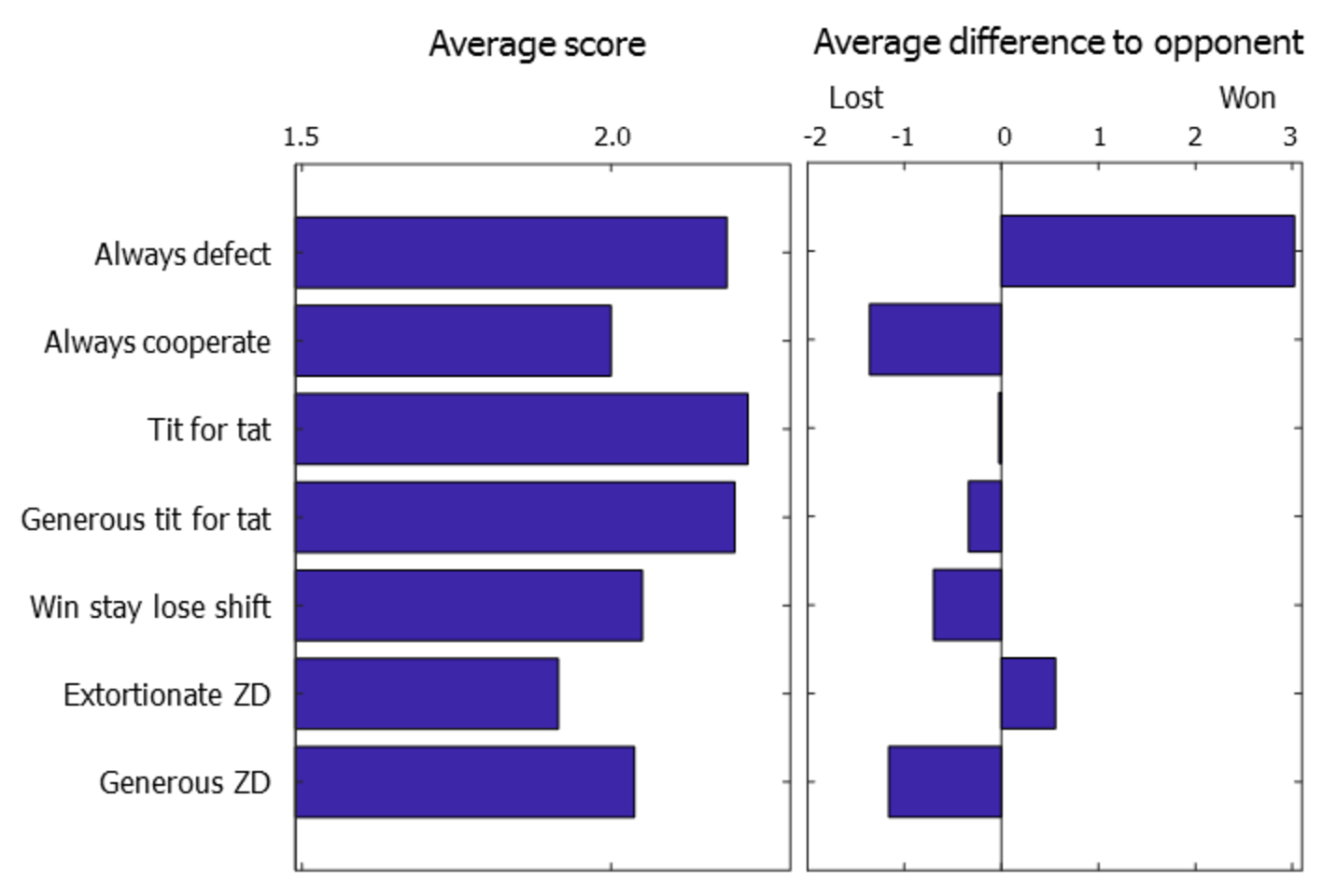Clever game players that extort their partner in the Prisoner’s dilemma do well head-to-head but do poorly in a mixed population of different players
Background
Researchers have understand how cooperation can evolve by using game theory, especially the Prisoner’s dilemma game. In this game players can do well by cooperating a lot, but there is always the temptation to defect on the deal for a better payoff. A player that appreciates that their partner will respond to their behaviour can extort them to ensure they win by choosing probabilities from certain ranges (‘zero-determinant’ strategies). The more the partner cooperates, the more both their scores increase, but the extortioner always wins.
Findings
We pitted lots of different strategies against one another in computer-based tournaments. Some strategies always cooperated or always defected no matter what the opponent did. Tit-for-tat does whatever the partner did last time, which punishes defection. A ‘generous’ version is a bit more forgiving. Win-stay-lose-shift changes its choice if it would have done better last time. Extorting strategies get overall poor averages scores in the tournament. Although they always beat partners, they do so by causing both scores to be lower. Generous zero-determinant do the opposite: the partner always wins, but both do really well on average
Implications
Extorting strategies are fascinating in that they give players a way to win head-to-head games. However, they are unlikely to evolve in the brains of real animals (including humans). This is because what matters to natural selection is not whether individual interactions are won, but the overall scores from lots of interactions. It is likely to be better to have generous strategies, which helps to explain why so many social animals are so cooperative.
Subject
Social behaviour
Subject Group
Zoology and Ecology
Keywords
cooperation
prisoners dilemma
extortion
generosity


Image credit:
Andrew Higginson
Posted by
AndrewDHigginson
on Mon Jul 16 2018
Article ID
P3663AE5X
Details of original research article:
Stewart AJ, Plotkin JB. Extortion and cooperation in the Prisoner's Dilemma. Proceedings of the National Academy of Sciences. 2012;109:10134-10135. View the Thread Network for this Finding
View the Thread Network for this Finding
Preceded by:
Cooperation evolves readily if individuals can walk away from uncooperative partners
Posted by: AndrewDHigginson Posted Fri Jun 26 2020
A clever game player can choose a strategy than ensures it beats an opponent in the Prisoner’s dilemma game
Posted by: AndrewDHigginson Posted Mon Jul 16 2018
Conflicts between animals are usually settled without injury, but such ritualised harmless fighting has evolved because it is good for individuals, not for the “survival of the species”
Posted by: AndrewDHigginson Posted Fri Oct 27 2017
